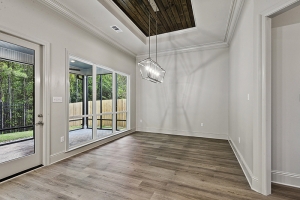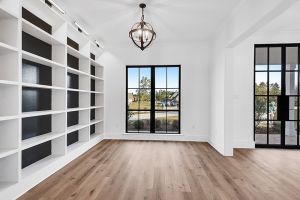Purchasing a home is one of life’s biggest adventures and you want to make sure your decision is the best for the long run. This is why it is so important to do these six important things before you take the plunge into homeownership.

Figure out how much home you can afford
You do not want to be house poor, which means you purchased a home that you really cannot afford. A good rule of thumb is to never spend more than 30% of your take home pay on a home. This means that it not only includes the price of the home, but also things like mortgage interest, taxes, insurance, maintenance and renovations. Some professionals in the industry also advise not to spend over 28% of your gross monthly income on housing costs and no more than 36% on total debt. They call this the 28/36 rule.
When a mortgage lender wants to see how much you can afford, they usually use the 28/36 rule. You do not want to exceed more with your debt-to-income ratio. If this happens you will end up paying a higher interest rate if you even are qualified for a mortgage.
Budget for closing costs
Closing costs can be different for different areas of the country and the different loans that are available. If you purchase a home for $250,000, you will need to come up with around $5,000 to $17,500 for closing costs. Closing costs include a charge for obtaining your credit score, application fee, property taxes, appraisal fee, loan interest, homeowners insurance and title insurance.
“The biggest mistake that first time homeowners make is they forget that they need closing costs – not just the down payment of say 10% or 20%,” says Barbara Corcoran.
Save for a down payment
There are some loans out there that do not require a down payment, but these are far and few in between. Usually a down payment is the buyer’s choice of how much they want to put down. Just remember, that the less you put down up front, the more the mortgage loan will be which will make your payments higher. Most in the industry will suggest at least a 20% down payment which will clear you of any private mortgage insurance.
Check your credit score
Your credit score can be the ticket to a mortgage and good rates. “This is the number that mortgage lenders will look at to determine whether you are creditworthy, and thus dictates whether you’ll qualify for a home loan, and the rates you will get. Major lenders often require a minimum credit score of at least 620, if not more,” reports Realtor.com.
Get pre-approved for a mortgage
This is a must when it comes to making an offer. A pre-approval lets a seller know you can afford their home and you mean business. “In hot markets, mortgage pre-approval is almost required for a seller to take your offer seriously. That’s because it spells out exactly how much a lender has agreed to loan you, thus assuring the seller that you’r both willing and able,” says Realtor.com.
Make sure the neighborhood is a good fit
You want to be able to grow into your home and your neighborhood. Getting to know the area is a must. You would hate to move in and not be able to sleep the first night because of a street light outside your bedroom window. “You’re not just buying the property you’re looking at. You’re also buying into the whole neighborhood. That’s why you have to be certain that it has the vibe and amenities you want,” explains Realtor.com.
A Realtor can help you through the home buying process from start to finish. A real estate agent knows the ends and outs of the current market and will help your buying process be a huge success.







